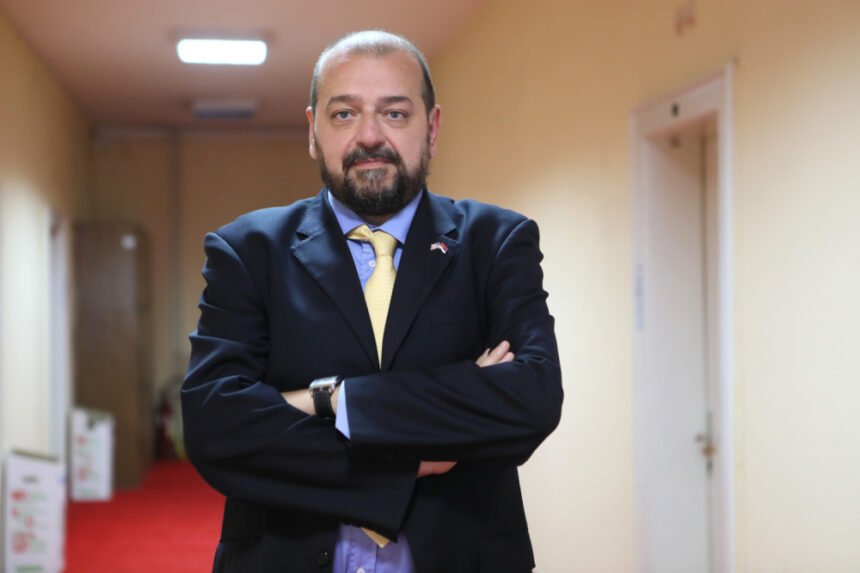In preparation for tomorrow’s crucial meeting between Kaja Kallas, the EU High Representative for Foreign Affairs, Kosovo Prime Minister Albin Kurti, and Serbian President Aleksandar Vučić, Dragan Šormaz, a prominent political figure, has urged Kallas to raise three pressing issues during the talks. Šormaz’s requests come amid rising tensions in the Balkans, particularly between Kosovo and Serbia, and with the EU’s increasing focus on regional stability.
Šormaz’s Key Requests for Kaja Kallas
In a direct appeal to Kaja Kallas and her team, Dragan Šormaz has emphasized the importance of addressing the following points in her discussions with the two Balkan leaders:
- Introduction of Sanctions Against Russia Šormaz has urged Kallas to push for the introduction of EU sanctions against Russia. Given the ongoing geopolitical tensions, particularly with Russia’s military actions in Ukraine, the imposition of sanctions is seen as a critical step toward aligning Serbia’s foreign policy with EU values.
- Addressing the “Banjska” Case The “Banjska” case, a highly sensitive issue related to the escalating tensions in the northern region of Kosovo, also needs to be addressed. Šormaz has called for concrete steps from both Kosovo and Serbia to ensure accountability and transparency regarding the incident, which has further strained relations between the two countries.
- Full Implementation of ODHIR Recommendations for Serbian Elections Another key point Šormaz highlighted is the need for Serbia to fully implement the recommendations from the Organization for Security and Cooperation in Europe (ODHIR) concerning its upcoming elections. This is vital for ensuring a fair and transparent electoral process, which remains a significant concern for the EU’s stance on Serbia’s integration into the bloc.
The Significance of EU’s Role in the Balkans
Šormaz’s remarks reflect growing concerns about Serbia’s alignment with the European Union and its commitment to shared values such as democracy, human rights, and rule of law. He emphasizes that President Vučić’s apparent focus on EU financial assistance, rather than adhering to EU core values, could undermine progress in the region.
Kosovo, on the other hand, continues to work towards strengthening its ties with the European Union. Prime Minister Albin Kurti has been vocal about the need for Serbia to align its foreign policy with EU standards, especially in relation to Russia, whose influence in the Balkans remains a point of contention.
What’s at Stake for Kosovo and Serbia?
The upcoming meeting will be pivotal in determining the direction of future EU involvement in the region. Serbia’s ongoing reluctance to fully implement European values, particularly regarding its stance on Russia, is a major hurdle for its EU accession process. Meanwhile, Kosovo’s position, though more aligned with EU interests, faces challenges, particularly regarding the normalization of relations with Serbia.
The EU’s influence on both leaders will be crucial in navigating these sensitive issues. With the region’s stability at stake, Kaja Kallas has the opportunity to steer the discussion towards significant advancements in EU integration and regional peace.








